Tarnished Gold: Illegal Amazon gold seeps into supply chains
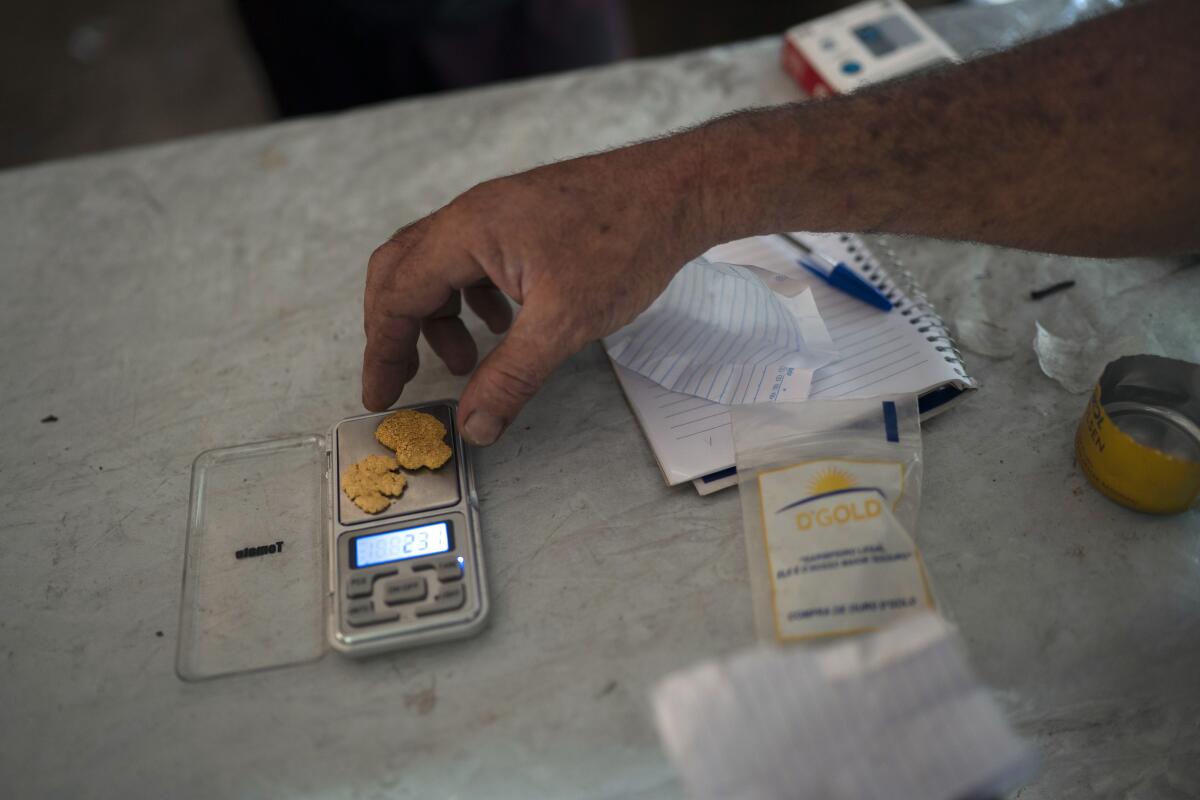
- Share via
SAO PAULO — The medals were billed as the most sustainable ever produced.
To match the festive spirit of South America’s first Olympics, officials from Brazil, the host country for the 2016 games in Rio de Janeiro, boasted that the medals hung around the necks of athletes on the winners’ podium were also a victory for the environment: The gold was produced free of mercury and the silver recycled from thrown away X-ray plates and mirrors.
Five years on, the refiner that provided the gold for the medals, Marsam, is processing gold ultimately purchased by hundreds of well-known publicly traded U.S. companies — among them Microsoft, Tesla and Amazon — that are legally required to responsibly source metals in an industry long plagued by environmental and labor concerns.
But a comprehensive review of public records by the Associated Press found that the Sao Paulo-based company processes gold for, and shared ownership links to, an intermediary accused by Brazilian prosecutors of buying gold mined illegally on Indigenous lands and other areas deep in the Amazon rainforest.
The AP previously reported in this series that the scale of prospecting for gold on Indigenous lands has exploded in recent years and involves carving illegal landing strips in the forest for unauthorized airplanes to ferry in heavy equipment, fuel and backhoes to tear at the earth in search of the precious metal. Weak government oversight enabled by President Jair Bolsonaro, the son of a prospector himself, has only exacerbated the problem of illegal gold mining in protected areas. Critics also fault an international certification program used by manufacturers to show they aren’t using minerals that come from conflict zones, saying it is an exercise in greenwashing.
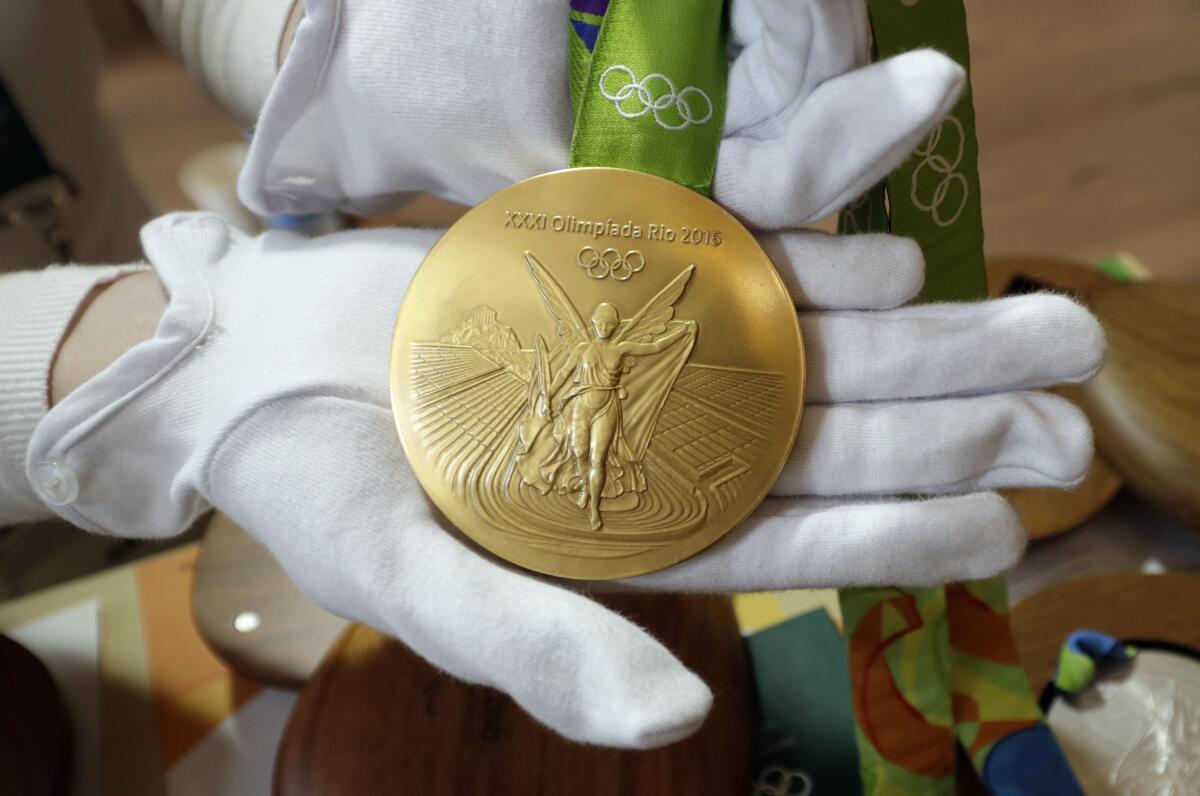
“There is no real traceability as long as the industry relies on self-regulation,” said Mark Pieth, a professor of criminal law at the University of Basel in Switzerland and author of the 2018 book “Gold Laundering.”
“People know where the gold comes from, but they don’t bother to go very far back into the supply chain because they know they will come into contact with all kinds of criminal activity.”
::
Much like brown and black tributaries that feed the Amazon River, gold illegally mined in the rainforest mixes into the supply chain and melds with clean gold to become almost indistinguishable.
Nuggets are spirited out of the jungle in prospectors’ dusty pockets to the nearest city where they are sold to financial brokers. All that’s required to transform the raw ore into a tradable asset regulated by the central bank is a handwritten document attesting to the specific point in the rainforest where the gold was extracted. The fewer questions asked, the better.
At many of those brokers’ Amazon outposts — the financial system’s front door — the gold becomes the property of Dirceu Frederico Sobrinho, known universally by just his first name.
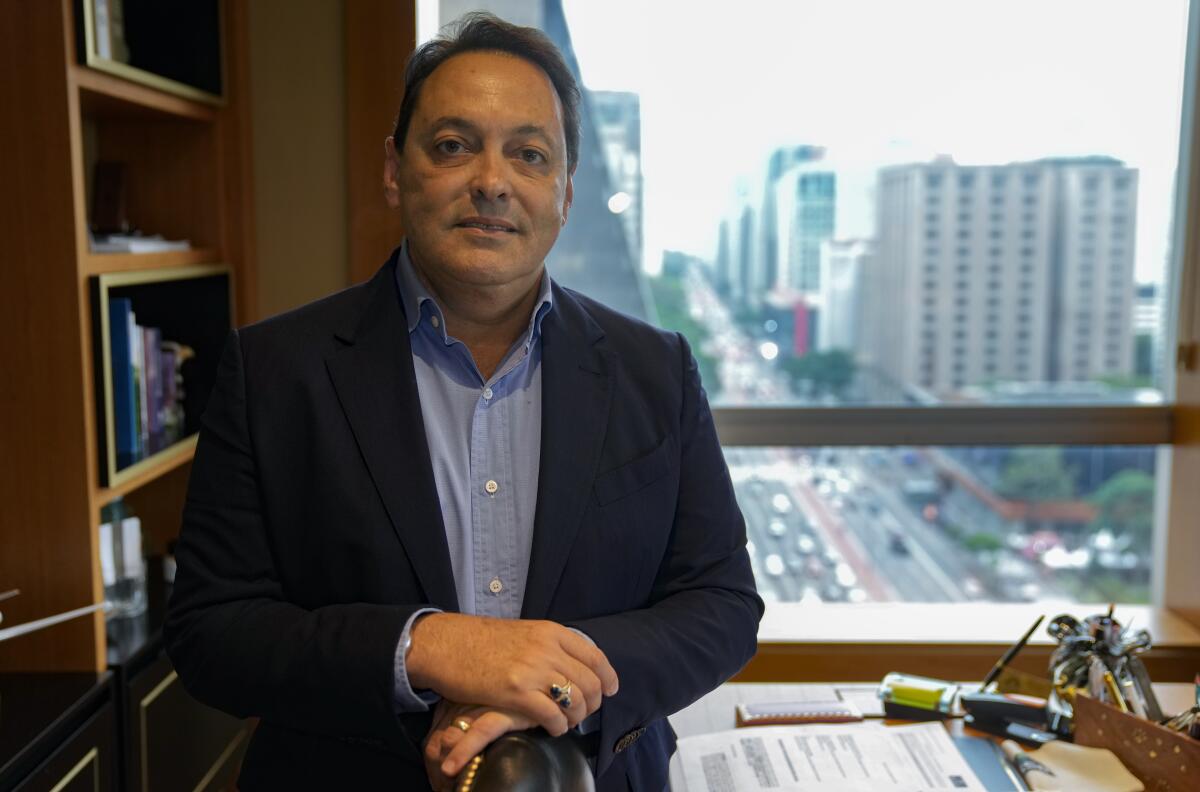
For four decades, Dirceu has embodied the up-by-your-bootstraps myth of the Brazilian garimpeiro, or prospector. The son of a vegetable grocer who sold his produce near an infamous open-pit mine so packed with prospectors — among them Bolsonaro’s father — they looked like swarming ants, he caught the gold bug in the mid-1980s and began dispatching planeloads of raw ore from a remote Amazon town. He secured his first concession in 1990, one year after the nation rolled out a permitting regime to regulate prospecting.
Today, from a high-rise on Sao Paulo’s busiest avenue, he is a major player in Brazil’s gold rush, with 173 prospecting areas either registered to his name or with pending requests, according to Brazil’s mining regulator’s registry. In the same building is the headquarters of the nation’s gold association, Anoro, which he leads. Dirceu, until last year, was also a partner in Marsam.
But even with gold jewelry dangling from his fingers and wrist, Dirceu still proudly boasts his everyman garimpeiro roots.
“You don’t motivate someone to go into the forest if they’re not chasing after a dream,” he said in a rare interview from his corner office studded with a giant jade eagle. “Whoever deals in gold has that: They dream, they believe, they like it.”
“We have a saying among the garimpeiros: ‘I’m a pawn, but I’m a pawn for gold,’” he adds.
At the center of Dirceu’s empire is F.D’Gold, Brazil’s largest buyer of gold from prospecting sites, with purchases last year totaling more than $361 million from 252 wildcat sites, according to data from the mining regulator. Only two international firms that run industrial-sized gold mines paid more in royalties in 2021, a sign of how once artisanal prospecting has become big business in Brazil — at least for some.
In August, federal prosecutors filed a civil suit against F.D’Gold and two other brokers seeking the immediate suspension of all activities and payment of $1.8 billion in social and environmental damages.
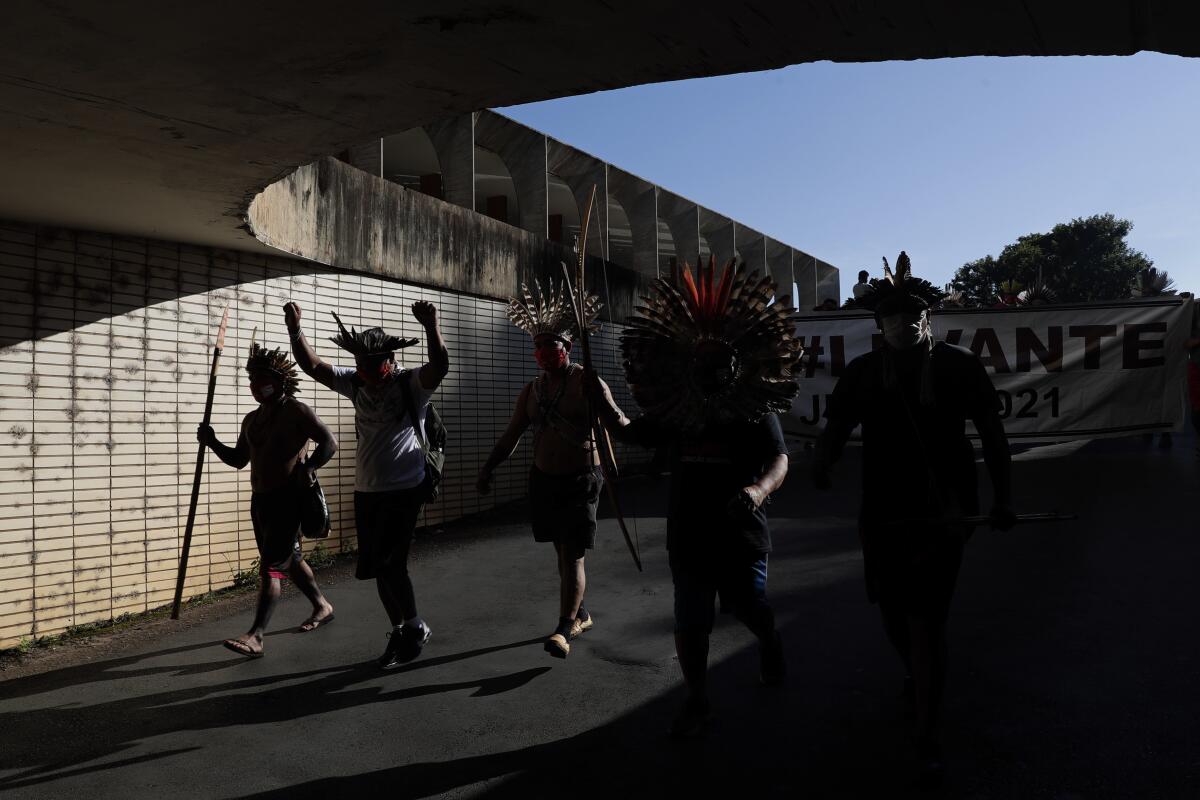
The complaint alleges the companies failed to take actions that would have prevented the illegal extraction of a combined 4.3 metric tons from protected areas and Indigenous territories, where mining is not allowed. Dirceu said his company complies with all laws and has implemented extra controls, but he acknowledged that determining the exact origin of the gold it obtains is “impossible” at present. He has proposed an industry-wide digital registry to improve transparency.
The ongoing suit is the result of a study published in July by the Federal University of Minas Gerais which found that as much as 28% of Brazil’s gold produced in 2019 and 2020 was potentially mined illegally. To reach that conclusion, researchers combed through 17,400 government-registered transactions by F.D’Gold and other buyers to pinpoint the location where the gold was purportedly mined. In many cases, the given location wasn’t an authorized site or, when cross-checked with satellite images, showed none of the hallmarks of mining activity — deforestation, stagnant ponds of waste — meaning the gold originated elsewhere.
Dirceu’s name and those of F.D’Gold and his mining company Ouro Roxo have popped up repeatedly over the years in numerous criminal investigations. He has been charged but never convicted.
A decade ago, federal prosecutors in Brazil’s Amapa state accused his company of knowingly purchasing illegal gold from a national park that was later transformed into gold bars. The charges were dismissed in 2017 after a federal judge in Brasilia ruled that F.D’Gold made the purchases legally, as evidenced by the invoices. Separate money laundering charges against Dirceu were also dismissed, due to lack of evidence. Dirceu has denied wrongdoing.
::
Whatever its origin, all the raw ore purchased by F.D’Gold ends up at Marsam.
F.D’Gold accounts for more than one-third of the gold Marsam processes, according to André Nunes, an external consultant for Marsam.
After almost two years as a partner in the Sao Paulo-based refiner, Dirceu stepped down last year and his daughter, Sarah Almeida Westphal, assumed management responsibilities. It was part of an effort to put different family members in charge of their own businesses, which function as separate legal entities, said Nunes, who previously worked for F.D’Gold.
“As much as it’s the same family, it’s important that each monkey has its own branch,” he said.
But the federal tax authority’s corporate registry shows Dirceu and Westphal remain partners in a machine rental and air cargo venture based in the Amazonian city of Itaituba, the national epicenter of prospecting. And Westphal could be seen working on a computer at F.D’Gold’s office on the day the AP interviewed Dirceu.
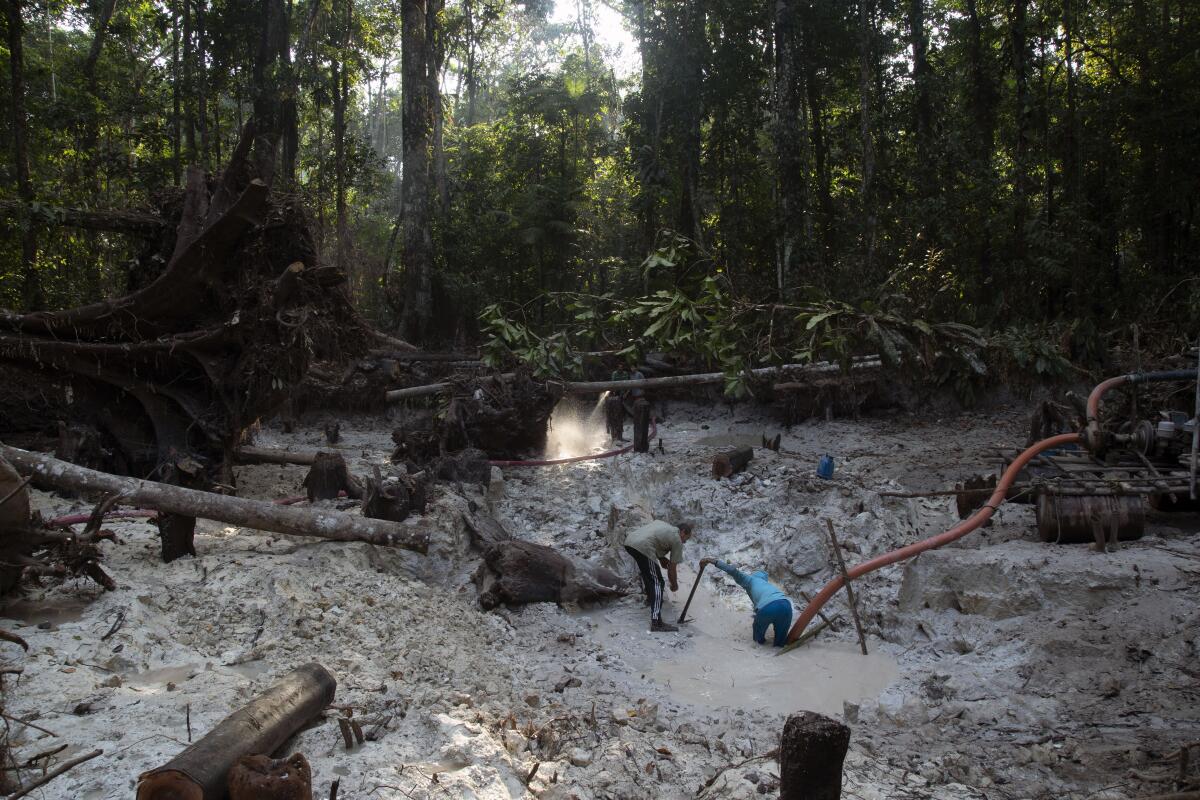
From Marsam, the gold travels far and wide. More than 300 publicly traded companies list Marsam as a refiner in responsible mining disclosures they are required to file with the U.S. Securities and Exchange Commission. The refiner has been virtually the only supplier to Brazil’s mint over the past decade, according to data provided to the AP through a freedom of information request.
“Why do they want our bars? Because they’re accepted all over the world,” said Nunes, who is also a member of Marsam’s six-person compliance committee.
Enabling such robust sales around the world is a seal of approval from the Responsible Minerals Initiative, or RMI.
The certification program run by a Virginia-based coalition of manufacturers emerged with the passage a decade ago of legislation in the U.S. requiring companies to disclose their use of conflict minerals fueling civil war in the Democratic Republic of Congo. Later, its standards were supplemented by tougher guidelines developed by the Paris-based Organization for Economic Cooperation and Development or OECD
Marsam is one of just two refiners in Brazil certified as compliant with RMI’s standards for responsible sourcing of gold, having successfully completed two independent audits. The last one was performed in 2018 by UL Responsible Sourcing, an Illinois-based consultancy.
But its ties to Dirceu’s family and its strategic positioning at the pinch point between the Amazon rainforest and global commerce raises questions about its previously unexamined role in the processing and sale of gold allegedly sourced from off-limit areas.
Marsam hasn’t been accused by prosecutors of any wrongdoing and insists that it only refines gold, not sell it, on behalf of third-party exporters and domestic vendors.
The company in 2016 introduced a supply chain policy, which it has updated over the years, requiring it to seek out information from suppliers whenever they are publicly linked to illicit activities. They are also expected to analyze a mandatory declaration of origin form submitted by each client. No such risks were identified in the most recent RMI report and Marsam was moved to a lower risk category requiring an audit once every three years.
Critics say one problem is that the OECD’s guidelines that RMI measures companies against pay scant attention to environmental crimes or the rights of Indigenous communities. Instead, they are geared toward risks stemming from civil wars and criminal networks. In Latin America, only Mexico, Colombia, and Venezuela — where drug cartels or guerrilla insurgencies are active — are classified as conflict-affected and high-risk areas deserving greater scrutiny for sourcing practices.
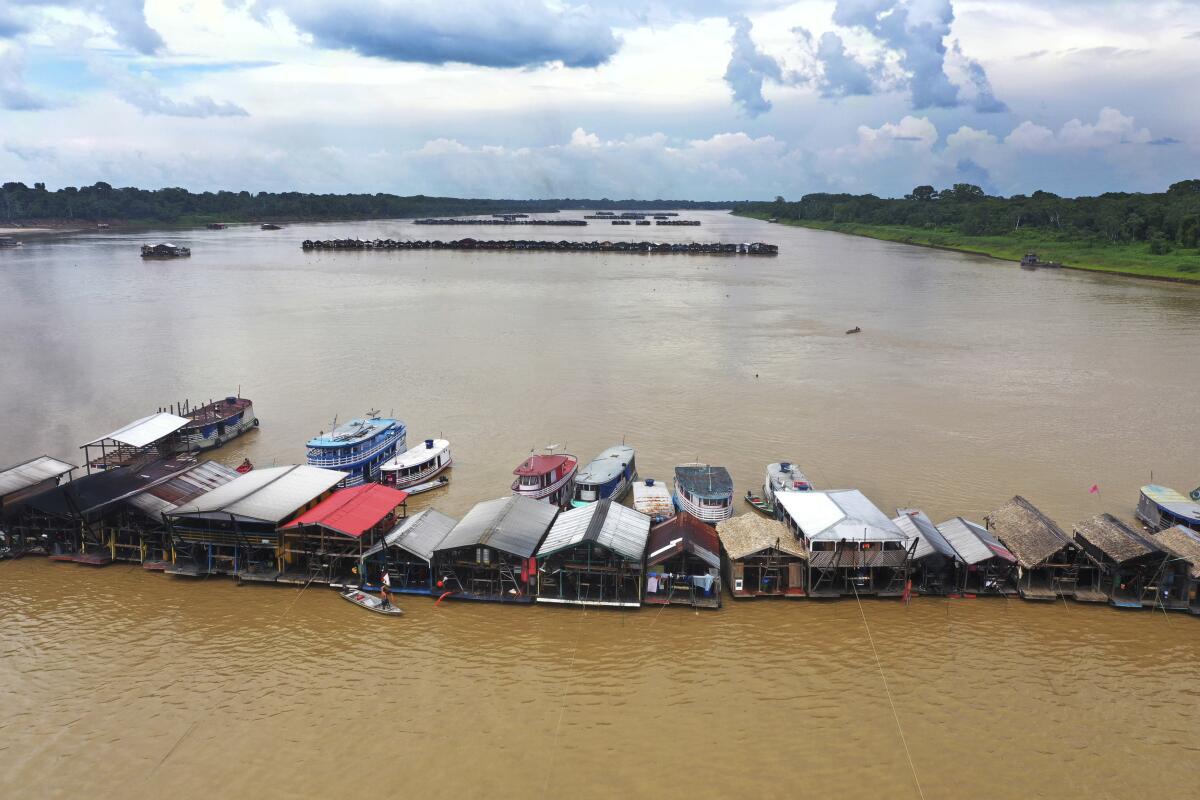
But the influx of illegal miners into Indigenous territories has been on the rise in recent years in Brazil — sometimes ending in bloodshed.
In May, hundreds of prospectors raided a Munduruku village, setting houses on fire, including one that belonged to a prominent anti-mining activist. The attack followed clashes farther north in Roraima state, where miners in motorboats and carrying automatic weapons repeatedly threatened a riverside Yanomami settlement. In one incident, two children, ages 1 and 5, drowned when a shooting sent people scattering into the woods.
In their suits against F.D’Gold and the two other brokers, prosecutors blame expanding mining activity for the illegal clearing in 2019 and 2020 of some 5,000 hectares of once pristine rainforest located on Indigenous territories as well as exacerbating “internal rifts that may be irreconcilable.”
Experts say these kinds of activities barely register in corporate boardrooms where sourcing decisions are made and given the seal of approval by international certification programs.
“Certification connotes a degree of certitude that isn’t at all possible in the gold industry, especially in Brazil,” said David Soud, an analyst at I.R. Consilium, which recently prepared a report for the OECD on illegal gold flows from neighboring Venezuela. “The result is a lot of blind spots that can easily be exploited by bad actors.”
::
Some of those blind spots are created by Brazil’s own weak oversight.
Under Brazilian law, securities brokers like F.D’Gold can’t be held responsible if the prospector whose ore they buy lies about its provenance. Nor is there any effective way to track the information provided at the point of sale.
It’s a system that inhibits tracking and accountability at best, and at worst enables willful ignorance as a means to launder illegal gold, according to wildcat mining experts including Larissa Rodrigues of the environmental think tank Choices Institute. For starters, experts say there need to be electronic invoices feeding a database that allows information to be verified.
“The supply chain is absorbing gold that doesn’t come from that chain. We know this happens,” said Rodrigues. “It’s a fact that fraud exists, but you can’t prosecute because you can’t prove it.”
Dirceu didn’t deny the possibility that F.D’Gold has unwittingly bought dirty gold. But he insists F.D’Gold, as an entity regulated by Brazil’s powerful central bank, follows the law and goes beyond what is required — such as hiring two companies in 2020 to monitor through satellite imagery the sources of its gold.
“The moment we had knowledge this could be happening, we hired them,” he said.
As president of the nation’s gold association, he claims to have been pushing since at least 2017 a plan to create a digital profile of every participant in the supply chain, complete with the garimpeiro’s photo, fingerprints and ID number.
“Digitalization and automation is the start of traceability,” he said. “The more legality, the more security there will be for our activities.”
Yet for all the apparent industry goodwill, and the support of Brazil’s tax authority, the proposal remains just that — an idea that hasn’t even been taken up by Congress. In the past two decades, the central bank hasn’t revoked authorization for any company that purchases gold.
For its part, Marsam says it uses its “best efforts” to identify the origin of the metals it refines. That includes requiring clients to sign affidavits attesting to the metal’s legality, demanding original invoices and conducting client visits to verify they have systems in place to prevent fraud.
But it doesn’t visit the mines themselves — something that RMI requires of refiners operating only in high-risk jurisdictions.
“We have to be diligent, but not do work that isn’t ours,” Nunes said. Asked when was the last time Marsam suspended a client it suspects of trading in dirty gold he shook his head, struggling to recall.
“I don’t remember it ever happening,” Nunes said before finally harkening back to one instance more than a decade ago.
::
RMI wouldn’t discuss prosecutors’ allegations against F.D’Gold, despite its close affiliation with Marsam, citing confidentiality agreements to encourage refiners to participate in its grievance process.
In a statement, it said that it takes all allegations “very seriously” and works with companies to address concerns. As part of that process, refiners are expected to trace activities all the way back to the mine whenever red flags are detected. If they don’t then address the concerns, they will be removed from the conformant list.
A 2018 report by the OECD found that while RMI’s standards are aligned with its guidelines there are significant gaps in the way RMI and other industry initiatives carry out audits, relying more on a refiner’s policies and procedures than its due diligence efforts. RMI-approved auditors also demonstrated a lack of basic technical skills and familiarity with the OECD guidelines, the study found.
“There was also an observed absence of curiosity, professional skepticism and critical analysis,” according to the report. RMI said it has since strengthened implementation efforts and is awaiting the outcome of a new assessment being conducted for the European Union.
Additional analysis in 2017 by Kumi, a London-based consulting firm that advises the OECD, found that only 5% of 314 end-user companies then registered with RMI, most of them U.S. based, had policies on sourcing conflict materials that were in line with the OECD guidelines.
“End-user companies set the tone for what happens in their supply chains,” said Andrew Britton, managing director of Kumi, which is conducting a new assessment of certifiers now for the European Commission. “It’s really important that companies’ due diligence on their supply chains really probes into potential risks and is not simply a box-ticking exercise.”
::
While land grabbing by ranchers, loggers and prospectors is hardly new in the Amazon, never before has Brazil had a president as outspokenly favorable to such interests.
Bolsonaro campaigned for the nation’s top job with promises of unearthing the Amazon’s vast mineral wealth, and his support for prospectors has encouraged a modern-day gold rush.
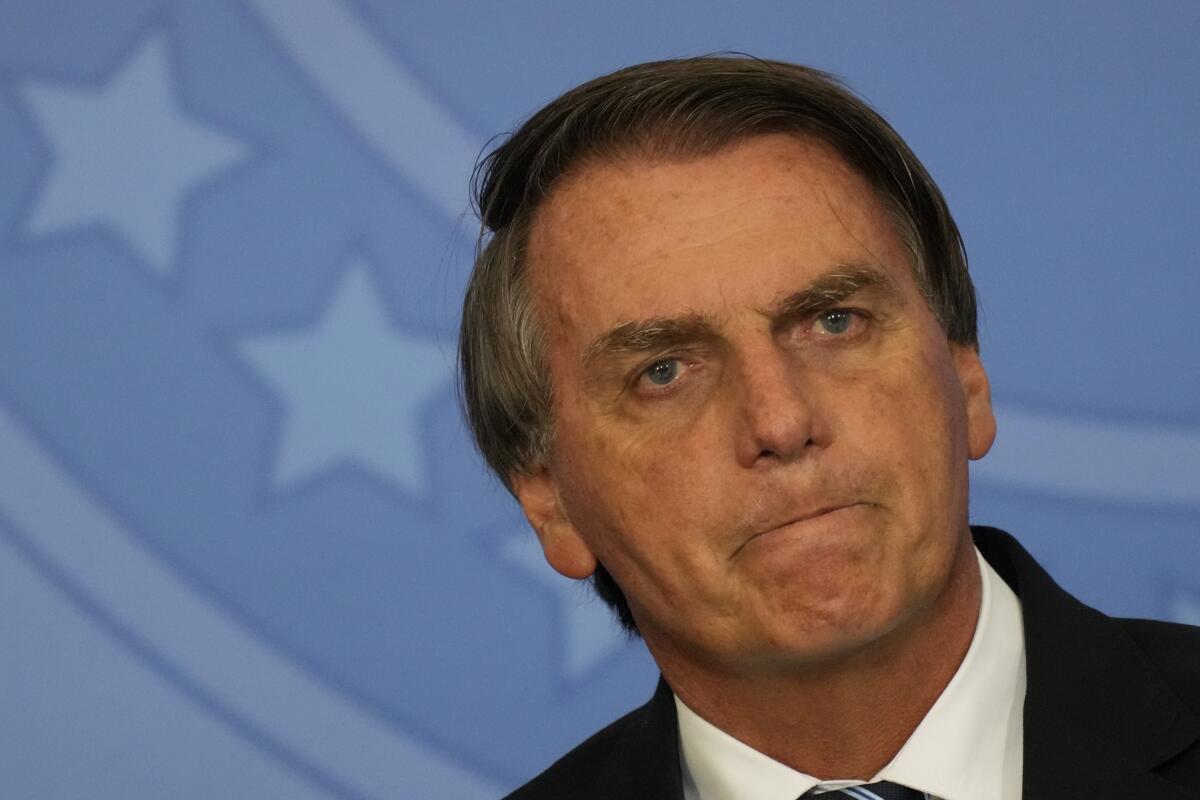
Bolsonaro’s father prospected for gold at Serra Pelada, where Dirceu first saw gold mining, and the president sometimes draws on his upbringing to rally support from prospectors. While campaigning, he aired videos in the Amazon region in which he boasted of sometimes pulling over at jungle stream and pulling a pan from a car to try his luck.
“Interest in the Amazon isn’t about the Indians or the damn trees; it’s the ore,” he told a group of prospectors at the presidential palace in 2019, vowing to deploy the armed forces to allow their operations to continue unfettered.
Then in May 2021, he attacked environmentalists for trying to criminalize prospecting.
“It’s really cool how people in suits and ties guess about everything that happens in the countryside,” he said sarcastically.
Beyond the rhetoric, Bolsonaro’s administration recently introduced legislation that would open up Indigenous territories to mining — something federal prosecutors have called unconstitutional and activists warn would wreak vast social and environmental damages.
Dirceu said he opposes allowing mining of Indigenous lands unless local people support the activity and are given first priority to pursue it themselves. But even as he fashions himself a reformer from the inside, he’s also benefitted from the current free-for-all. For one, he doesn’t even consider prospectors working without a permit to be illegal — just irregular.
Given persistent efforts to deregulate gold extraction, calls by Dirceu and the gold association to increase accountability over the gold supply chain “ring hollow,” said Robert Muggah, who oversees an initiative on environmental crime in the Amazon at think tank Igarape Institute.
Soon, Dirceu may stand to profit even more. Recently, F.D’Gold received approval to begin exporting directly. Dirceu said the company is currently seeking clients abroad and hopes to begin shipments soon.
If he succeeds, it means that, for the first time, someone will have a hand in the entirety of Brazil’s gold supply chain: from the Amazon where the gold is mined, to the outposts where it is first sold, to the planes that bring the ore to his daughter’s refinery in Sao Paulo and, finally, into the hands of foreign buyers.
“It’s really important to understand that the nature of gold extraction in countries like Brazil is linked, ineluctably, to the global markets,” said Muggah.
Goodman reported from Miami.
More to Read
Sign up for Essential California
The most important California stories and recommendations in your inbox every morning.
You may occasionally receive promotional content from the Los Angeles Times.










